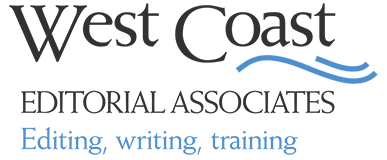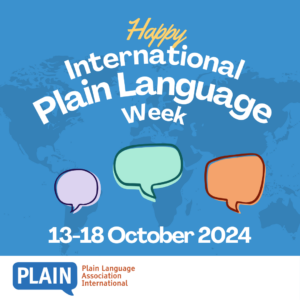To self-publish a personal or family story, there are a range of options to consider.
High standards for plain language and editing
 After much anticipation, the new ISO Plain Language Standard is set to be published this month. When it comes, it will join almost 25,000 other voluntary ISO standards improving the accessibility, safety, quality, environmental impact, or security of almost any product or service you can imagine.
After much anticipation, the new ISO Plain Language Standard is set to be published this month. When it comes, it will join almost 25,000 other voluntary ISO standards improving the accessibility, safety, quality, environmental impact, or security of almost any product or service you can imagine.
The new standard is based on the widely accepted definition of plain language from the International Plain Language Federation: “A communication is in plain language if its wording, structure, and design are so clear that the intended readers can easily find what they need, understand what they find, and use that information.” WCEA uses that definition in the writing workshops we offer to help organizations improve their communications.
If you’re a writer, the ISO standard will help you judge whether your documents meet that definition and figure out how to make them better. If you’re an editor or writing trainer, it will help you guide writers with best practices backed by empirical evidence. And if you’re a reader, it will make more documents easier to read. For everyone, the new standard will save time and money.
Another plain language standard we’re keeping an eye on is from Accessibility Standards Canada. This one is expected to be published in spring 2024 and will apply to all federally regulated organizations in Canada. The standard will promote techniques that make it easier for people with disabilities to find, understand, and use written information, making it easier for all readers to do the same.
Are we expecting too much from these standards? We don’t think so. Our experience with Editors Canada’s professional editorial standards—both as contributors to their development and as users—has shown us how beneficial standards are. The editing standards define what editors should be able to do at various stages of the editorial process, lead to clearer communication with clients, and support better training. Their existence also provided the seed for Editors Canada to develop its world-class professional certification program. Most importantly, the standards help us and our editing colleagues do higher-quality work for the writers and readers we serve.
It’s hard to imagine our work lives without the editing standards, and we know our future selves will say the same about the upcoming plain language standards. Helping readers is at the core of what we do, and these standards are all crucial to that mission.



